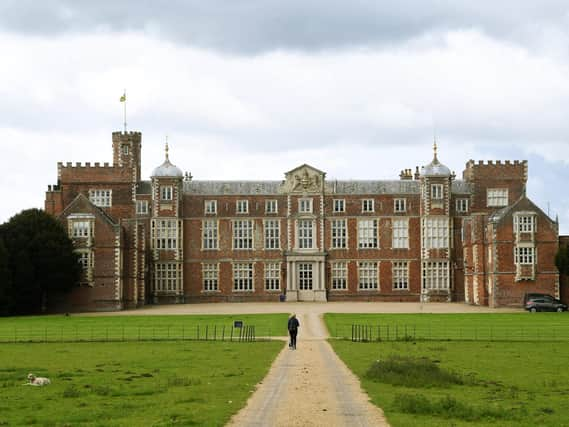Burton Constable Hall among hundreds of objections to plans to drill six new petroleum wells in Yorkshire


The hall gets 32,000 visitors a year and the Burton Constable Foundation is worried cyclists will no longer be able to ride safely down the country road past its entrance due to increased numbers of heavy goods vehicles.
The foundation fears congestion caused by convoys of trucks and roads being closed – as nearby Pasture Lane was for months –could impact on visitor numbers, their income and future.
Advertisement
Hide AdAdvertisement
Hide Adhe objection, which is one of nearly 1,000, comes ahead of a pre-planning meeting on Monday. The recommendation which council planning officers will make to councillors is due today (Oct 22).
Rathlin Energy (UK) Ltd wants to expand its West Newton A site, with the new wells drilled up to 2,000m deep to hit Permian reservoirs which may hold petroleum, a combination of oil and gas.
It also wants to “test and produce” from the two existing wells at the well site near Sproatley.
Campaigner Sarah Hockey, from Fossil Free East Yorkshire, said “every parish council in the area has objected to it” and allowing the proposal would fly in the face of the council’s declaration of a climate emergency.
Advertisement
Hide AdAdvertisement
Hide AdThe group says once production has started, up to 25 tankers a day – an HGV every 14 minutes, seven days a week – would be required. It also say the impact of traffic on the Trans-Pennine Trail, one of the many routes in the area popular with walkers, cyclists and horse-riders, has not been analysed in the application.
Earlier this month, the company said it had agreed to cut HGV trips from 25 to 10 a day.
However, Ms Hockey said: “Unless it’s written in as a condition, you cannot take their word for it and local people will have to live with the consequences of it for years to come.”
Rathlin Energy (UK) Ltd declined to comment.
Recent minutes of a liaison committee meeting state that a community fund would be available for community-led initiatives to help “improve local amenities as well as reducing the impact on those people directly affected by the work”.